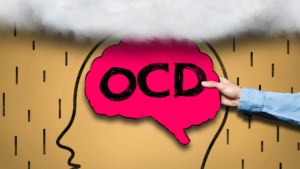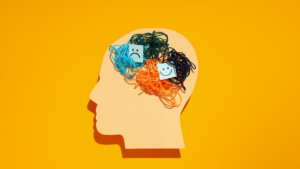
Mental health issues like depression, bipolar disorder, anxiety, schizophrenia, as well as ADD/ADHD among others are scary things to discuss. Many people fear the stigma associated with being labeled “crazy.” But keeping mental health issues to yourself can lead to serious complications. It’s never too late to seek treatment, and doing so will save you and those around you a lot of pain.
Why should mental health be taken seriously?
Mental health is a concept most people have a vague understanding of. These definitions will inevitably change from person to person, but most people know what mental health is. Mental health is when a person is able to function well and cope with everyday life-no matter what life throws your way. People who have a mental illness, or those with serious mental health conditions, may need more help than the average person. However, just because mental illness is common does not mean it’s something that we should ignore.
Why is it important to keep up with your mental health?
It can be challenging to stay motivated and keep up with your mental health, especially if you’re feeling stuck. It’s important to understand that mental illness is not a character flaw, and you’re not a “bad person” for having it, but you need to learn how to get help and take care of yourself.
Is it OK to leave someone with mental health issues?
Everyone can experience mental health issues, but certain groups seem disproportionately affected. Society can stigmatize and condition us to shy away from mental illness, which can make it especially uncomfortable to seek help. But the stigma surrounding mental illness is fading, and more people are starting to open up about their mental health struggles, even celebrities. For these reasons, many people are now wondering if it is OK to leave someone with mental health issues, and it is. So, what exactly is “leaving” someone with mental health issues.
Why You Should Seek Treatment for Mental Health Issues
Mental health issues are common in the United States, and many of them can affect people at any time in their lives. But with treatment, many people can regain control of their mental health and enjoy a full life again. The first step in getting help can be the hardest, but asking for help is a sign of strength. If you or someone you know struggles with a mental health issue, help is out there. The National Alliance on Mental Illness (NAMI) has helpful resources, including links to support groups where you can get support from others dealing with the same issues. Other than that, you can also explore psychologists or mental health professionals providing Online Therapy sessions and aids to get appropriate treatment. If you prefer one-on-one sessions in a medical establishment, you can look for a therapist in your vicinity.
Chronic Pain
Chronic pain can take many forms. It’s often described as an “invisible illness” because it’s easy to hide. Some people with chronic pain experience constant pain, while others experience flare-ups from time to time. Chronic pain can also affect anyone, regardless of age or gender. And medical researchers are still working to understand exactly how chronic pain develops. Seeking help for chronic pain is good, as it can give you various avenues of treatment. Some of them, such as chocolate edibles with THC, are even quite tasty and fun. No bitter pills or powders in sight. The good news is that the landscape of chronic pain management extends beyond THC edibles. THCa products present another avenue for relief. THCa, a non-psychoactive cannabinoid, is known to possess analgesic properties, offering potential benefits in alleviating chronic pain. Whether through the use of High THCa Flower or similar products infused with this compound, individuals have diverse choices to get relief from chronic pain.
Chronic Physical Health Issues
Chronic physical health issues can be scary. Patients are forced into isolating themselves, limiting their activities, and limiting their interactions with loved ones. However, patients who suffer from chronic conditions shouldn’t feel alone. Patients, caregivers, and their families often benefit from joining together, so they learn of each other’s struggles, successes, and triumphs.
Instability in Your Daily Life
A chaotic, unpredictable lifestyle can lead to feelings of instability that, over time, can really impact your outlook on life. While it may be fun to have unpredictable events occur, when the chaos becomes too much, it puts you at risk for stress, anxiety, and depression. Many things can cause a chaotic lifestyle. You may be dealing with a traumatic event, you may be dealing with a difficult relationship, or you may be trying to juggle too many responsibilities. These problems need some kind of solution, for which you can seek mental health assistance or talk about them with your close friends and family. You can also take an unconventional approach by trying CBD oils, edibles, or concentrates available on https://www.geniecannabis.com/westwarren or similar websites. Cannabis and other such products may help you to manage stress and anxiety, which are the biggest cause of depression and other mental health issues. Keep in mind that while these things can be difficult to deal with, they are not things that should define you.
Incarceration
Incarceration is an unfortunate reality for many Americans, and incarceration is a fate worse than death for people living on the streets. The reasons people end up in jail vary, but incarceration itself is a punishment. It’s meant to deter future criminal behavior, but it rarely works this way. According to the National Institute of Corrections, it’s imperative to understand how incarceration impacts people’s long-term outcomes.
You shouldn’t have to keep mental health issues to yourself. Whatever issues you may be struggling with, you don’t have to let them define who you are or how you react to life. Let people in your life know so that they can help and support you. Talk with a trusted friend or professional. Because you’re afraid or ashamed isn’t one of the best reasons to get help.



